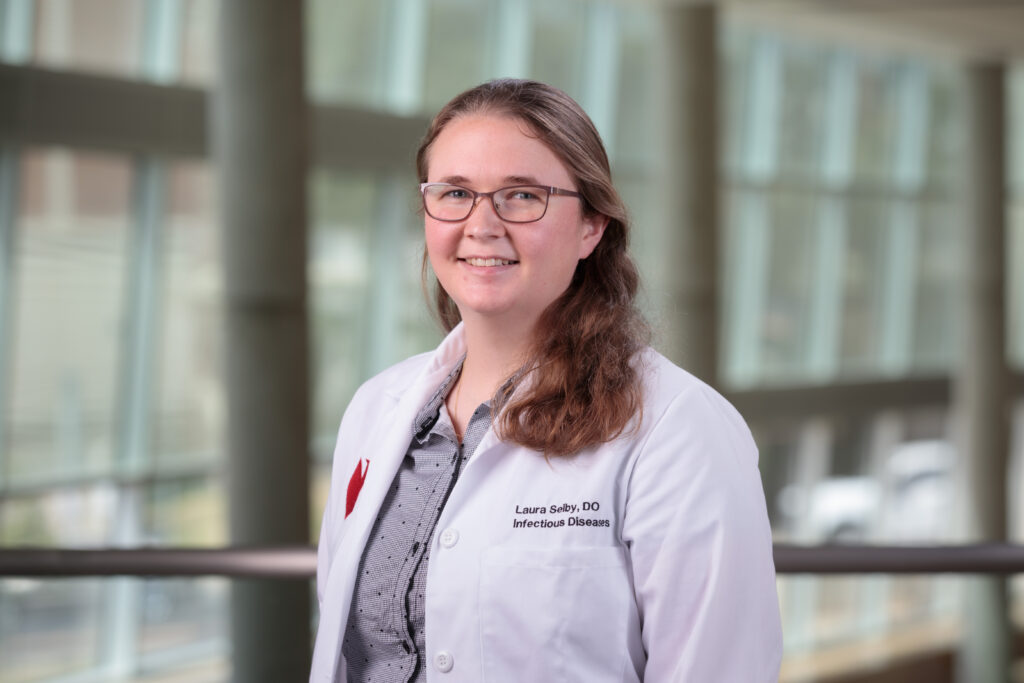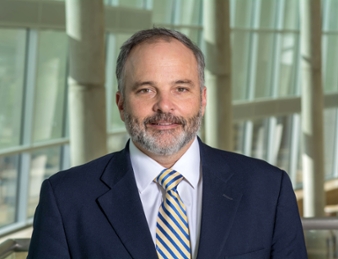While most research we highlight focuses on medicine and clinical care of patients, there is just as much value to be gained in researching the workforce and healthcare community at large. Understanding the trends and problems within our own field can lead to profound improvements in the daily lives of healthcare workers everywhere. In this alternative arena of research, UNMC ID has made major strides. Read on for digests of recent articles published by UNMC ID faculty that pertain to matters of personnel.

The hospital or clinic is not the only place that healthcare workers can be exposed to SARS-CoV-2. Just like the rest of the public, household exposures are understandably a major risk factor for contracting the virus. As data from the delta variant became available early this year, Drs. Selby, Hewlett, Rupp, and Starlin of UNMC ID conducted a study on vaccinated healthcare professionals with home exposures. They concluded that the delta variant, along with numerous environmental factors, contributed to a sharp increase in the COVID-19 attack rate. This rose from around a 20% chance of contracting the virus from a COVID-19 positive household member before the delta variant, to a ~50% chance of COVID-19 contraction during the delta wave, underscoring the large jump in infectivity possible with a mutating virus. Read the full research brief here.

Stepping away from the healthcare workforce, Dr. Lawler and colleagues recently published a paper examining the intersection of ethics, the meat-processing industry, and COVID-19. This paper explores a group of workers who, because of their ‘essential industry’ status and working conditions which facilitated the spread of SARS-CoV-2, were expected to put their health and lives at risk during the pandemic. In the words of the authors: “This paper offers an ethical framework for infection prevention and control recommendations grounded in public health values of health and safety, interdependence and solidarity, and health equity and justice, with particular attention to considerations of reciprocity, equitable burden sharing, harm reduction, and health promotion.” Read more here.

Lastly, on the topic of healthcare burnout, Dr. Cawcutt recently published an article exploring the relationship between bias, the impostor phenomenon, and burnout. A significant problem in medical fields, burnout afflicts 30% of nurses and greater than 50% of physicians. The paper argues that the interaction of these three concepts, previously considered separate, create a cycle which perpetuates burnout within the medical community. Targeting these components may then help guide interventions in the future. Read on here for more details.